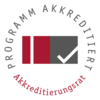Nonprofit-Management and Public Governance
- DegreeMaster of Arts (M.A.)
- Type of studyFull-time study
- Standard period of study4 semesters
- Commencement of studiesWinter semester (1 Oct)
- Credits (ECTS)120
- Language of instructionGerman
- Department / Central InstituteDepartment of Public Administration
Degree programme
In Germany, about 2.5 million people work full time in not-for-profit organisations; they are assisted by a further 15 million volunteer workers. This sector plays a vital role in the provision of services, especially in the areas of health and social services, sports and leisure, culture, education and research as well as in the consumer protection and conservation sectors. These fields are set to experience growth in the coming years, requiring a steady supply of qualified professionals to meet future challenges. Provided by HWR Berlin in cooperation with HTW Berlin, the Master’s degree programme Non-profit Management and Public Governance trains its graduates to fulfil those specific requirements.
While focusing on Business Administration-related elements, this degree programme combines interdisciplinary aspects of Politics, Law and the Social Sciences. Graduates are prepared for the requirements of middle and senior management positions in the not-for-profit sector. The Master’s degree programme is ideally suited to holders of a Bachelor’s degree (especially Public and Nonprofit-Management from HWR Berlin and HTW Berlin) to qualify themselves for this innovative employment sector.
Professional field
The graduates of this Master’s degree programme work in Church-based and other not-for-profit organizations performing public services, public authorities and public and private companies related to the not-for-profit sector. They are also qualified to provide consultation services in the not-for-profit and public governance sectors. Some establish their own social enterprises
Degree structure
The course is structured into 20 modules spread across four semesters. The fourth semester consists of the Master’s thesis and a colloquium.
Seminars in the first semester
- (M 01) The Functions and Structures of the Third Sector in an International Perspective
- (M 02) The Theoretical Foundations of Public Governance
- (M 03) Policy Field Analysis
- (M 04) Business Planning
- (M 05) Law for Nonprofit Managers
- (M 06) Research Methods
Seminars in the second semester
- (M 07) The Third Sector
- (M 08) Personnel Management
- (M 09) Marketing and Fund-raising
- (M 10) Accounting and Financial Management
- (M 11) Organisational and Change Management
- (M 12) Case Study I
Seminars in the third semester
- (M 13) Inter-organisational Management
- (M 14) Lobbying and Political Communication
- (M 15) Controlling
- (M 16) Corporate Governance
- (M 17) Case Study II
- (M 18) Project
Final examination in the fourth semester
- (M 19) Master’s thesis
- (M 20) Final colloquium
Successful completion of a first professionally qualified university degree (at least 180 ECTS credits) in the field of
a) a bachelor's degree in public and nonprofit management or a comparable business degree with a specialized focus on the nonprofit or public sector; or
b) a bachelor's degree program in business administration or
c) another bachelor's degree program, combined with proof of study and examination results at a university amounting to at least 20 ECTS credits or, if proof with ECTS credits is not possible, of at least 16 semester hours (SWS) in business administration subjects.
Applicants with a degree from an university abroad:
01.05.-30.06.
Students with a Non-German Bachelor degree apply at uni-assist e. V.
Fees and grants
- Tuition fees
None
- Semesterfee
ca. € 300 per semester (incl. local transport semester ticket)
Guidance for prospective students
Important dates and deadlines
01.10. - 08.02.
Vorlesungszeit Wintersemester
23.12. - 04.01.
Vorlesungsfreie Zeit
20.01. - 15.02.
1. Prüfungszeitraum
25.03. - 14.04.
2. Prüfungszeitraum
